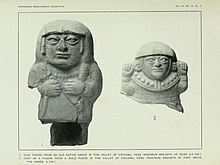Talal Asad | |
|---|---|
 Talal Asad in 2013 | |
| Born | April 1932 (age 92) Medina, Saudi Arabia |
| Citizenship | Saudi Arabian (formerly)[7]: 55–60 Pakistani[7] British[7] |
| Spouse | Tanya Asad[8] |
| Father | Muhammad Asad |
| Academic background | |
| Alma mater | |
| Thesis | The Kababish[1] (1968) |
| Doctoral advisor | E. E. Evans-Pritchard |
| Influences | |
| Academic work | |
| Discipline | Anthropology |
| Sub-discipline | |
| School or tradition | |
| Institutions | |
| Notable works | Formations of the Secular (2003) |
| Influenced | |
| Part of a series on |
| Anthropology of religion |
|---|
 |
| Social and cultural anthropology |
Talal Asad (born 1932) is a Saudi-born cultural anthropologist who is currently Distinguished Professor Emeritus of Anthropology and Middle Eastern Studies at the Graduate Center of the City University of New York. His prolific body of work mainly focuses on religiosity, Middle Eastern studies, postcolonialism, and notions of power, law and discipline. He is also known for his writing calling for an anthropology of secularism.
His work has had a significant influence beyond his home discipline of anthropology. As Donovan Schaefer writes:
The gravitational field of Asad’s influence has emanated far from his home discipline and reshaped the landscape of other humanistic disciplines around him.[9]
- ^ Asad 1968.
- ^ Jakobsen 2015, p. 114; Kessler 2012, pp. 203–204.
- ^ Kessler 2012, pp. 203–204; Mirsepassi 2010, p. 55.
- ^ a b c Landry 2016, p. 78.
- ^ Mozumder 2011, p. 7; Uğurlu 2017, p. 5.
- ^ Mozumder 2011, p. 7.
- ^ a b c Ovamir Anjum (21 February 2018). "Interview with Talal Asad". American Journal of Islamic Social Sciences. 35 (1). International Institute of Islamic Thought (IIIT): 67–70. doi:10.35632/ajis.v35i1.812.
When I switched my Saudi passport for a Pakistani one it made me a member of the Commonwealth, and that gave me the freedom to move and work as I pleased... But eventually, I think it was when I came back from the Sudan, that I decided to get British Nationality
- ^ Watson 2011, p. 100.
- ^ Schaefer, Donovan (2020). "Talal Asad's Challenge to Religious Studies". Religion and Society. 11 (1): 20–23. doi:10.3167/arrs.2020.110102.